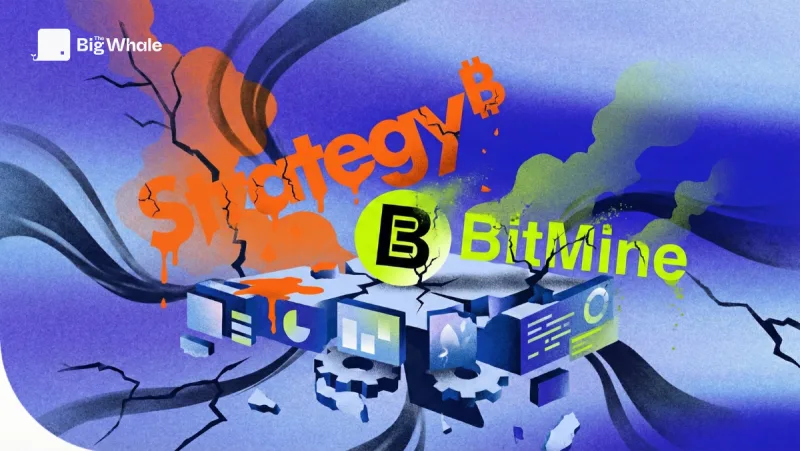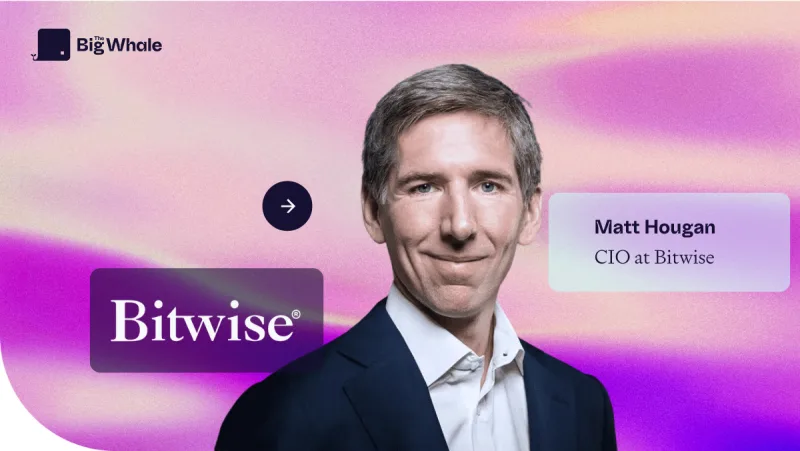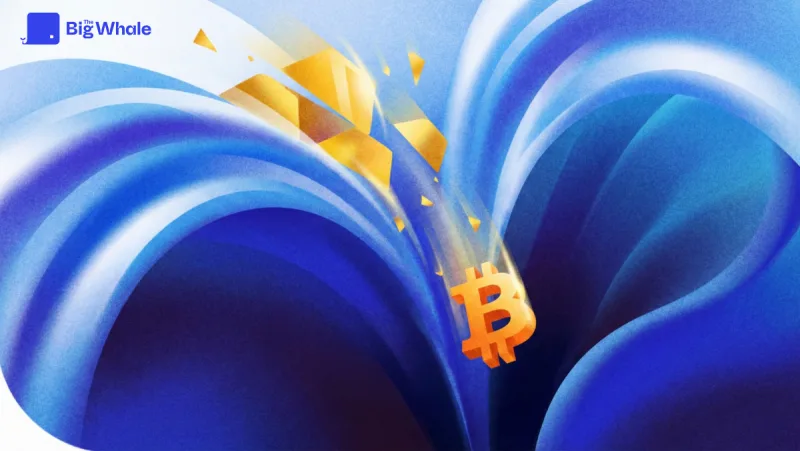TBW - How Sonar wants to reinvent on-chain fundraising
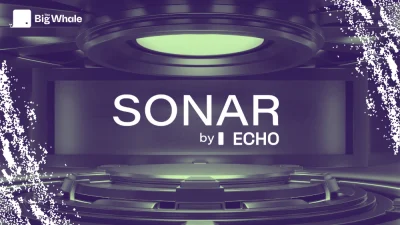
Five hundred million dollars raised in just a few minutes. That was the feat achieved by Plasma last May during the public sale of its XPL token, organised on Sonar.
A total of 1,111 investors took part in the operation, including a few whales (large wallets) who snapped up a large share of the allocation. The scene was reminiscent of the heyday of 2017, when ICO fever was setting crypto on fire.
The frenzy was such that one address shelled out 39 ETH in gas fees alone, or more than $10 million in secured tokens.
Beyond the stunt, this raise raises questions: are we witnessing the return of ICOs, in a rethought, more transparent and decentralised form? At least, that's the ambition of Sonar, the platform that wants to democratise access to token sales and give power back to users.
>> Plasma, the stablecoin-first blockchain that bets everything on USDT
What is Sonar?
Sonar was born in the fold of Echo, the platform dreamed up by Jordan Fish, better known by the pseudonym "Cobie" on X. Echo had a simple aim: to open up seed round financing to private individuals, until then reserved for funds and insiders. In one year, more than 30 projects raised more than $100 million, including MegaETH, which raised $10 million in two express sales.
>> Legion vs Echo: The match of new crypto project funding platforms
But this success quickly showed its limits. The founders wanted to address their own community directly, without relying solely on Echo's audience. However, for legal reasons, the platform was restricted to private fundraisings, which prevented any public promotion on Twitter, Discord or Telegram.
Another constraint: each deal had to be backed by a "group lead", a lead investor validating the operation.
It was out of this frustration that Sonar was born, a tool designed to allow any founder to organise their public token sale, without going through Echo validation.
The software is designed as an open-source, self-hosting and flexible infrastructure: auctions or fixed-price sales, dynamic allocation, multi-chain compatibility (Solana, Base, Cardano, Hyperliquid...), with integrated compliance tools to boot.
Projects can thus filter certain jurisdictions, manage KYC and certify eligibility via Echo's eID passport, all without unnecessarily exposing investors' personal data.
Unlike traditional launchpads, Sonar does not offer a showcase page or centralised bid flow. Sales are not promoted by the platform: their visibility relies entirely on the founders and investors' ability to search, analyse and follow communities.
In this logic, Sonar is not a mainstream product, but a lightweight tool designed for builders and communities that are already committed. As the team sums it up: "There could be 1,000 simultaneous sales on Sonar, without Echo even knowing about it."
Operating against the grain
For an investor, using Sonar has nothing to do with traditional launchpads. On Binance Launchpad, for example, every new project is highlighted: banners on the home page, notifications, relays on social networks... Even without following the news closely, it's impossible to miss.
With Sonar, the logic is completely different. No central showcase, no calendar of upcoming sales, no automatic highlighting. If you don't actively follow a project, you simply risk never knowing that a sale is in progress. The responsibility for communication lies with the founder, not the platform. An assertive choice, which breaks with established codes and values the most proactive investors, those who take the time to research and understand before entering.
The problem Sonar wants to solve
Behind Sonar, Echo's ambition is crystal clear: to enable founders to sell their tokens directly to their community, rather than to a mass of anonymous investors who have come to speculate.
This is one of the major limitations of traditional launchpads. Buoyed by their marketing power, they attract thousands of participants, but a large proportion are not really interested in the projects. Their logic is simple: obtain an allocation, sell as quickly as possible and pocket a quick profit. It's a familiar mechanism from the days of ICOs and IDOs (via exchanges), which are often seen as opportunities for "easy" money.
Sonar is seeking to break this pattern by giving the reins back to the founders. It is up to them to set the rules: restricting sales to their own user base, opening up more widely, choosing the channel, defining vesting or access conditions. This flexibility enables them to target genuinely committed investors, and to build a fundraising package that is more in tune with the spirit of the project.
A counter-model to traditional launchpads
For an investor used to IDOs, Sonar may not seem revolutionary at first glance. Platforms such as CoinList or DAO Maker have the advantage of a clear interface, carefully selected projects and centralised communication. But this comfort comes at a price: often intrusive KYC procedures, fierce competition to obtain an allocation, and quite often the obligation to store the platform's native token.
Sonar takes the opposite tack. Thanks to the attestation system set up by Echo (eID), a user can prove their eligibility without directly transmitting their personal data to each project. This is a significant guarantee of confidentiality, particularly for those who take part in several sales a year. The absence of a centralised showcase also reduces competition: only attentive investors connected to the right communities will have access to opportunities at the right time.
For founders, the benefits are just as clear: no prior selection, no dependence on a centralised player, and total freedom in structuring the fundraising. By reducing friction, Sonar offers them an autonomy rarely possible on traditional launchpads.
Can the old demons of ICOs be avoided?
Between 2017 and 2018, ICOs experienced an unprecedented explosion: more than 4,000 companies raised $7.1 billion in 2017 and nearly $19.7 billion the following year. By comparison, Kickstarter had raised "only" $3.3 billion from its inception through 2018, and venture capital had invested $3.6 billion in blockchain projects in 2017. But the euphoria soon gave way to abuses: scams, ghost projects, broken promises... So much so that in 2019, the market collapsed.
We will have to wait until 2021 and the rise of IDOs, launchpads and DeFi to see a revival of interest. Against this backdrop, can we expect Sonar to avoid the mistakes of the past? Not entirely. The software takes up the original spirit of ICOs (allowing founders to freely launch a public sale) but with more modern tools: filtering by country, vesting, KYC management via eID.
There remains one major limitation: Sonar does not carry out any verification of projects. The platform is neutral; it provides resources but does not guarantee quality. It can host solid initiatives as well as opportunistic or even fraudulent projects. Everything therefore rests on the investor, who is called upon to do his or her own research and not give in to the frenzy.
Traditional IPO / ICO / Sonar comparison
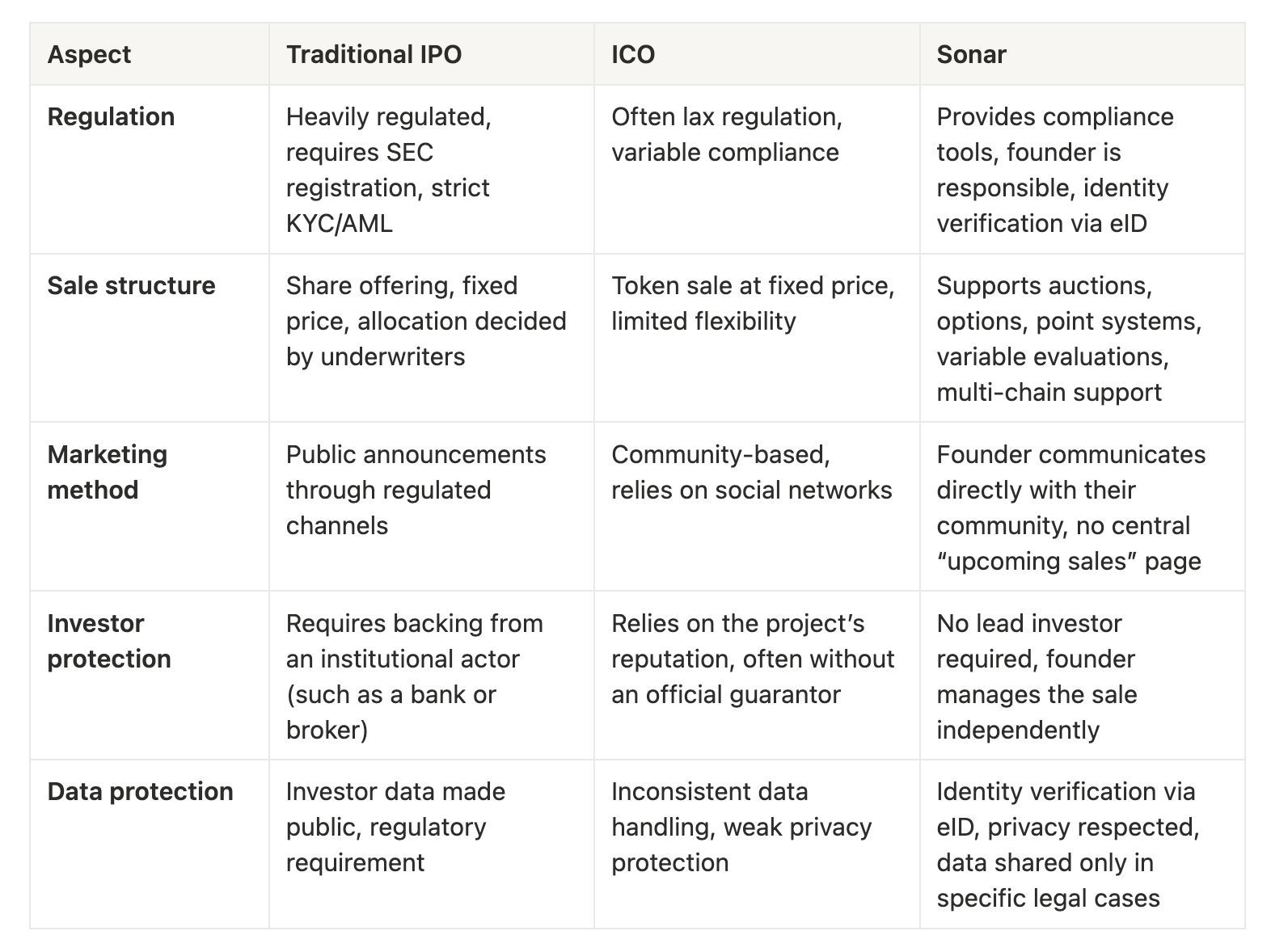
The Big Whale's opinion
Sonar does not claim to replace established launchpads such as CoinList or DAO Maker. The platform offers an alternative model that is more raw and free, giving founders the opportunity to organise their own token sales, without going through a centralised structure.
This freedom does have its downsides, however: no filter, no automated promotion, no guarantees. Investors have to go looking for information, check for themselves and identify promising projects. Sonar values initiative and vigilance over passivity.
For the curious who like to explore, take measured risks and join communities in their infancy, the tool can open up unique opportunities. For others, the more supervised platforms undoubtedly remain a more comfortable option, even if they involve arriving later in a project's dynamic.
But should we expect a 2017-style ICO renaissance? Unlikely. Back then, each round attracted attention simply because it existed, driven by novelty and widespread FOMO. The market is now more mature and more demanding. A sale on Sonar has no guarantee of success: it requires a solid community, a credible project and good timing.
Sonar appears to be a valuable tool for founders seeking autonomy. For investors, on the other hand, the experience is not simplified, quite the contrary: it imposes an additional research effort. A return to a more organic Web3, but also a more demanding one.
>> Tokenised shares: what's really behind this new trend
